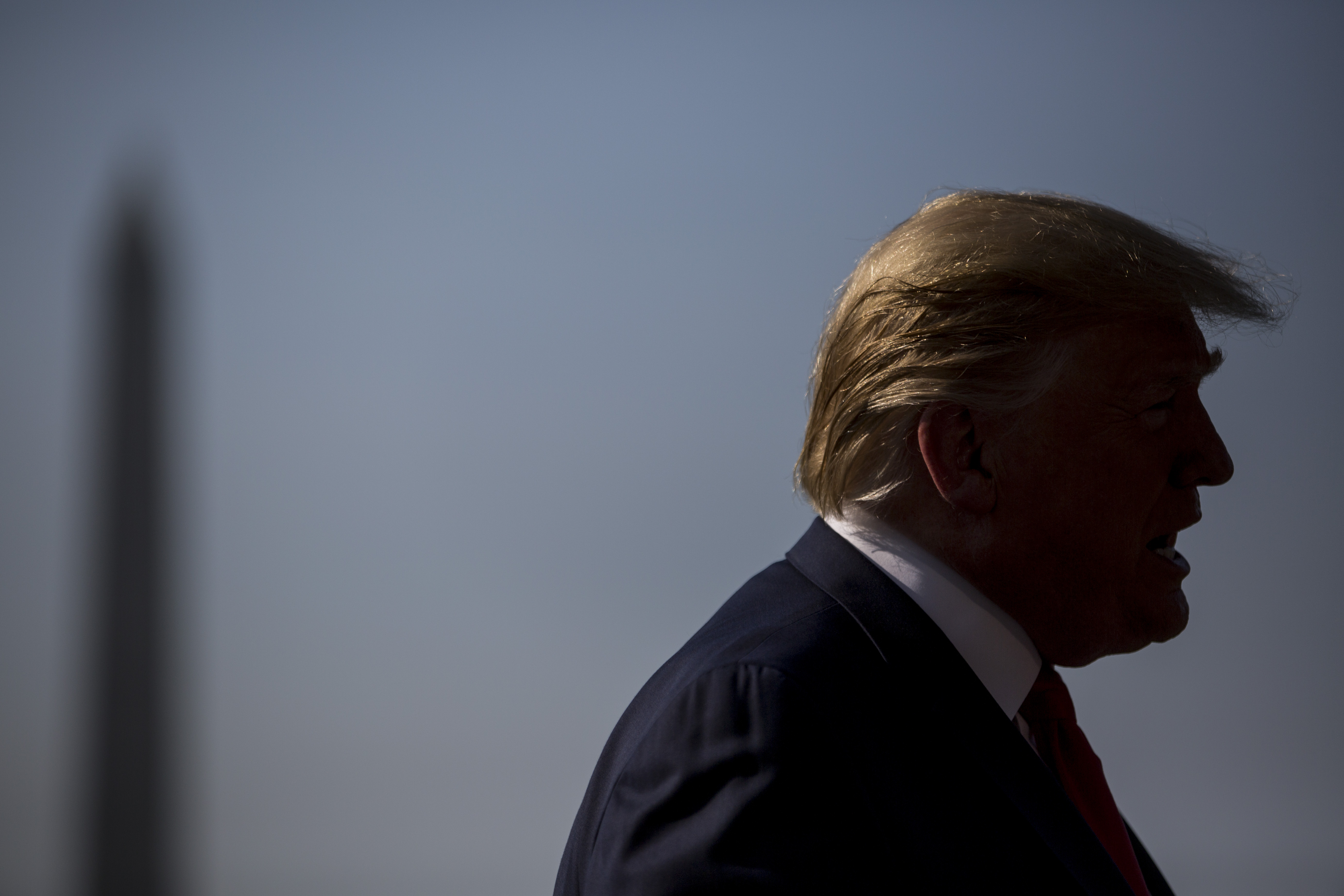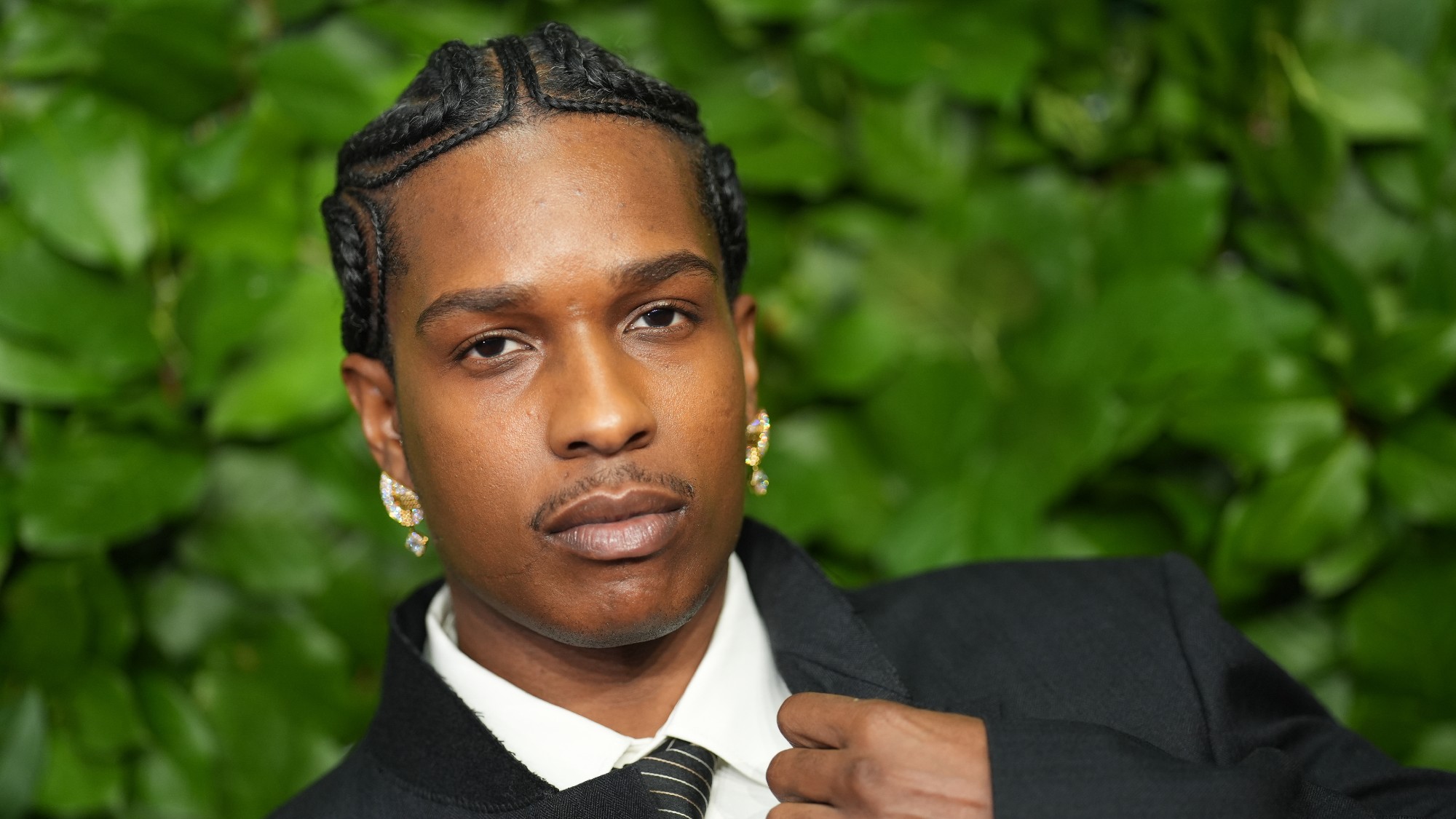Donald Trump's moment of crisis
The economy is failing. Foreign challenges loom. The president isn't ready.


A free daily email with the biggest news stories of the day – and the best features from TheWeek.com
You are now subscribed
Your newsletter sign-up was successful
The moment of crisis has finally arrived for President Trump. Does anybody think he is prepared to handle it?
This week, the stock market sank more than 800 points on fears that a recession is in the offing. Across the Pacific Ocean, China's confrontation with Hong Kong protesters appears to be coming to an inflection point — with results that could reverberate throughout the world economy. And in India, a decades-old stalemate over control of Kashmir seems to be ending badly and dangerously. This isn't just a moment of crisis. It's moments, plural.
So far, Trump has reacted precisely as you'd expect. Which is to say, badly.
The Week
Escape your echo chamber. Get the facts behind the news, plus analysis from multiple perspectives.

Sign up for The Week's Free Newsletters
From our morning news briefing to a weekly Good News Newsletter, get the best of The Week delivered directly to your inbox.
From our morning news briefing to a weekly Good News Newsletter, get the best of The Week delivered directly to your inbox.
He's blaming the pending recession on the Federal Reserve. Publicly, he's shrugging at the conflict in Hong Kong — "I hope it works out for everybody," he said. But privately, he's reportedly deferential to the possibility of a Chinese military crackdown and offered a "personal meeting" with Chinese President Xi Jinping to resolve the matter. As for Kashmir, Trump has already withdrawn his offer to mediate that crisis.
Most of this leadership — if you can call it that — has taken place on Twitter. None of it seems to be working.
If the president has a real plan to deal with these events, it is not readily apparent. Instead, Trump is acting as he always has, relying on an unshakeable belief in his own personal charm and negotiating skills to solve long-intractable issues — "I alone can fix it" was his unforgettably hubristic campaign promise — and blaming everybody but himself when things go badly.
For all the controversies and rage stirred up by his two-and-a-half-year presidency, you could argue that Trump has been a lucky man. There have been plenty of crises during his tenure — a government shutdown, mass shootings, the separation of migrant families, the rise of racism — but so far he has avoided the kind of historical catastrophe by which we often judge our presidents. There have been no economic collapses and no major outbreaks of war, no national or international crises that require him to prove his mettle.
A free daily email with the biggest news stories of the day – and the best features from TheWeek.com
George W. Bush spent his presidency reacting to 9/11. Barack Obama started his tenure trying to solve the worst recession since the Great Depression. Trump has stumbled from one mess to another, steadfastly proclaiming victory at every point, but so far he has not had to face a comparable challenge.
Until now.
Before he was elected, observers looked at Trump and wondered how he would respond to what Hillary Clinton in 2008 famously called a "3 a.m. phone call" event that demanded clear, sharp, and thoughtful leadership. Trump seemed like a bully and a braggart, thin-skinned and shallow, reliant on bluster and star power. He didn't appear equal to the worst that the times can throw at a president. If faced with a 9/11-style disaster, one historian told Politico in 2016, it seemed likely Trump would "would simply withdraw to his Twitter account, riding out the threat with a lot of talk and little action." That sounds about right.
Trump has a limited toolbox when it comes to dealing with the challenges before him. His fondness for authoritarians leaves him little moral standing — even if he were inclined — to support the Hong Kong protesters or challenge a possible Chinese crackdown. He passed a giant tax cut when the economy was still growing, so that particular bit of economic stimulus probably won't be available to him now that it is really needed. It is possible his trade wars have helped bring on economic instability. As far as Kashmir, it's likely the president simply doesn't understand the stakes or the history of the region.
These shortcomings might be glossed over if Trump had a strong executive team in place. But the State Department has been hollowed out since the beginning of his presidency — it lost more than 1,200 positions by March 2018 — making it more difficult for that agency to provide the expertise and resources to deal effectively with challenges abroad. And on the economy, one of Trump's chief advisers is Larry Kudlow, best known until now as a cable TV news host. The bench is thin.
President Trump has not yet risen to the challenges of the times — instead, the times seem to have descended to his level. Bluster and tweets helped make Trump one of the most powerful men in the world. But to effectively address problems, he will have to do more than be loud at them.
We often judge our presidents by how they handle the big moments. So far, Trump is failing the test.
Joel Mathis is a writer with 30 years of newspaper and online journalism experience. His work also regularly appears in National Geographic and The Kansas City Star. His awards include best online commentary at the Online News Association and (twice) at the City and Regional Magazine Association.
-
 The pros and cons of tapping your 401(k) for a down payment
The pros and cons of tapping your 401(k) for a down paymentpros and cons Does it make good financial sense to raid your retirement for a home purchase?
-
 Music reviews: Ari Lennox, Lucinda Williams, and A$AP Rocky
Music reviews: Ari Lennox, Lucinda Williams, and A$AP RockyFeature ‘Vacancy,’ ‘World’s Gone Wrong,’ and ‘Don’t Be Dumb’
-
 Book reviews: ‘Vigil: A Novel’ and ‘Fear and Fury: The Reagan Eighties, the Bernie Goetz Shootings, and the Rebirth of White Rage’
Book reviews: ‘Vigil: A Novel’ and ‘Fear and Fury: The Reagan Eighties, the Bernie Goetz Shootings, and the Rebirth of White Rage’Feature Taking on the space between life and death and a look back at a 1984 shooting that shocked New York City
-
 Trump demands $1B from Harvard, deepening feud
Trump demands $1B from Harvard, deepening feudSpeed Read Trump has continually gone after the university during his second term
-
 Trump’s Kennedy Center closure plan draws ire
Trump’s Kennedy Center closure plan draws ireSpeed Read Trump said he will close the center for two years for ‘renovations’
-
 Trump's ‘weaponization czar’ demoted at DOJ
Trump's ‘weaponization czar’ demoted at DOJSpeed Read Ed Martin lost his title as assistant attorney general
-
 Gabbard faces questions on vote raid, secret complaint
Gabbard faces questions on vote raid, secret complaintSpeed Read This comes as Trump has pushed Republicans to ‘take over’ voting
-
 Greenland: The lasting damage of Trump’s tantrum
Greenland: The lasting damage of Trump’s tantrumFeature His desire for Greenland has seemingly faded away
-
 The price of forgiveness
The price of forgivenessFeature Trump’s unprecedented use of pardons has turned clemency into a big business.
-
 Will Peter Mandelson and Andrew testify to US Congress?
Will Peter Mandelson and Andrew testify to US Congress?Today's Big Question Could political pressure overcome legal obstacles and force either man to give evidence over their relationship with Jeffrey Epstein?
-
 The ‘mad king’: has Trump finally lost it?
The ‘mad king’: has Trump finally lost it?Talking Point Rambling speeches, wind turbine obsession, and an ‘unhinged’ letter to Norway’s prime minister have caused concern whether the rest of his term is ‘sustainable’
